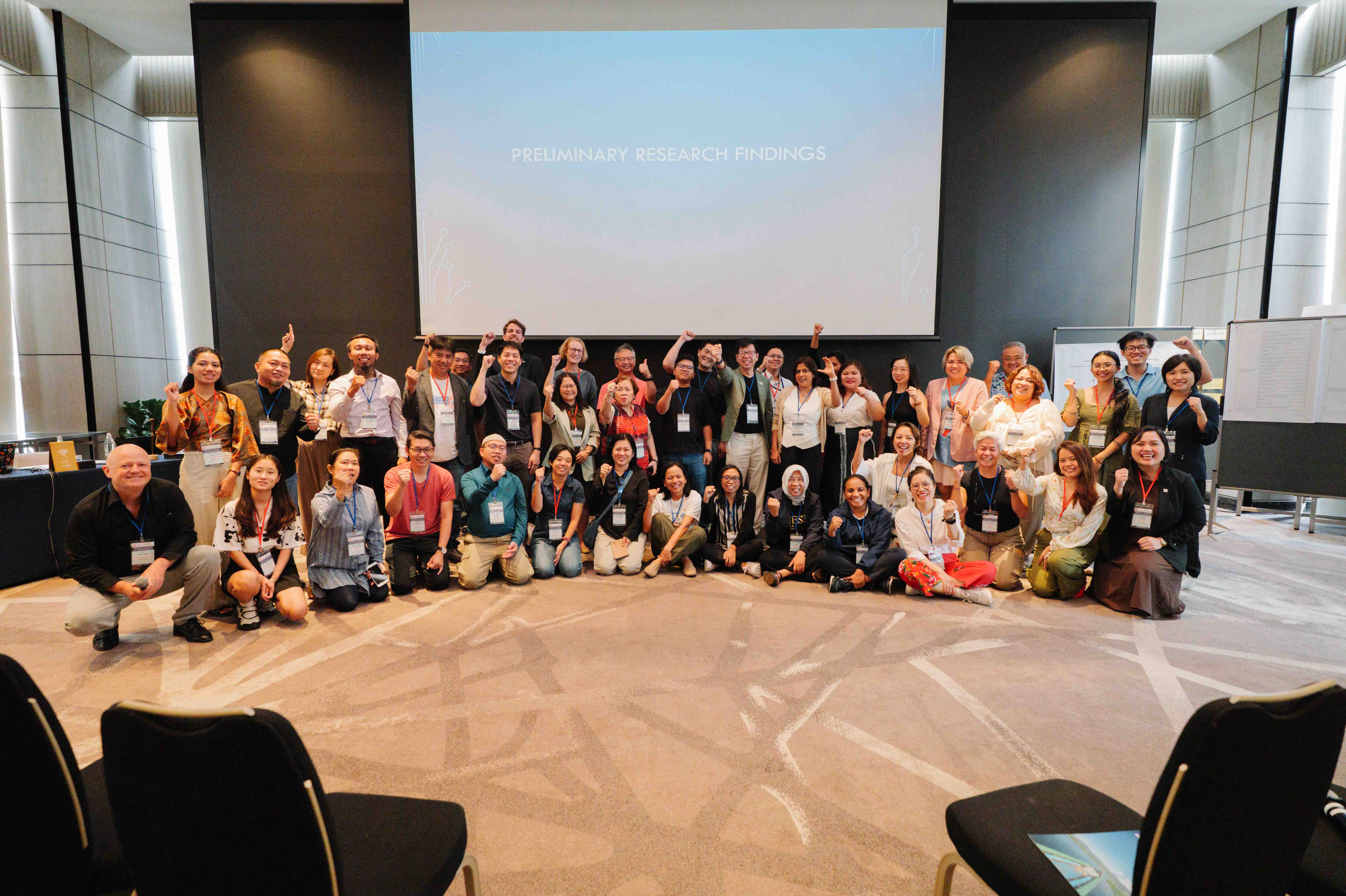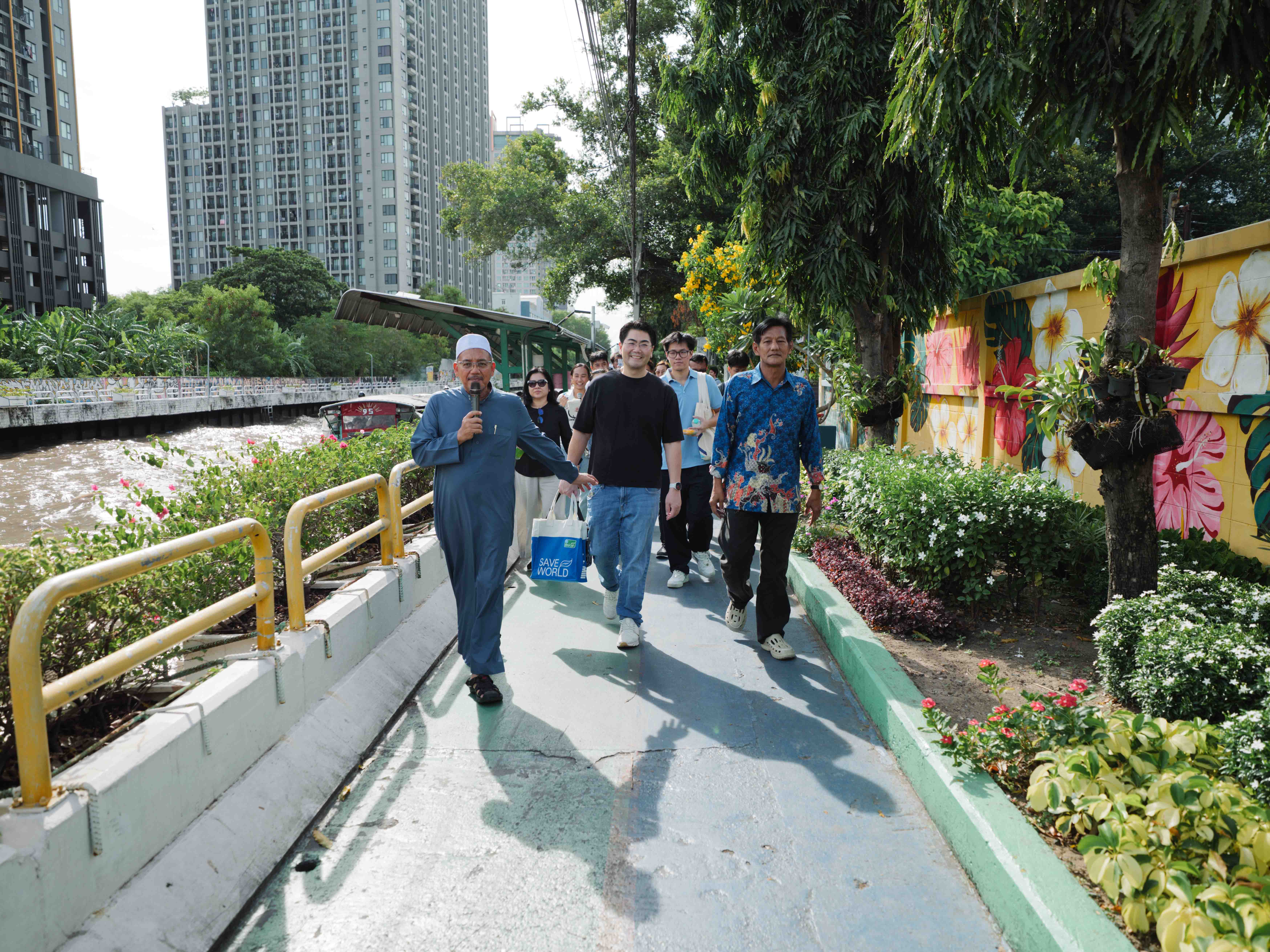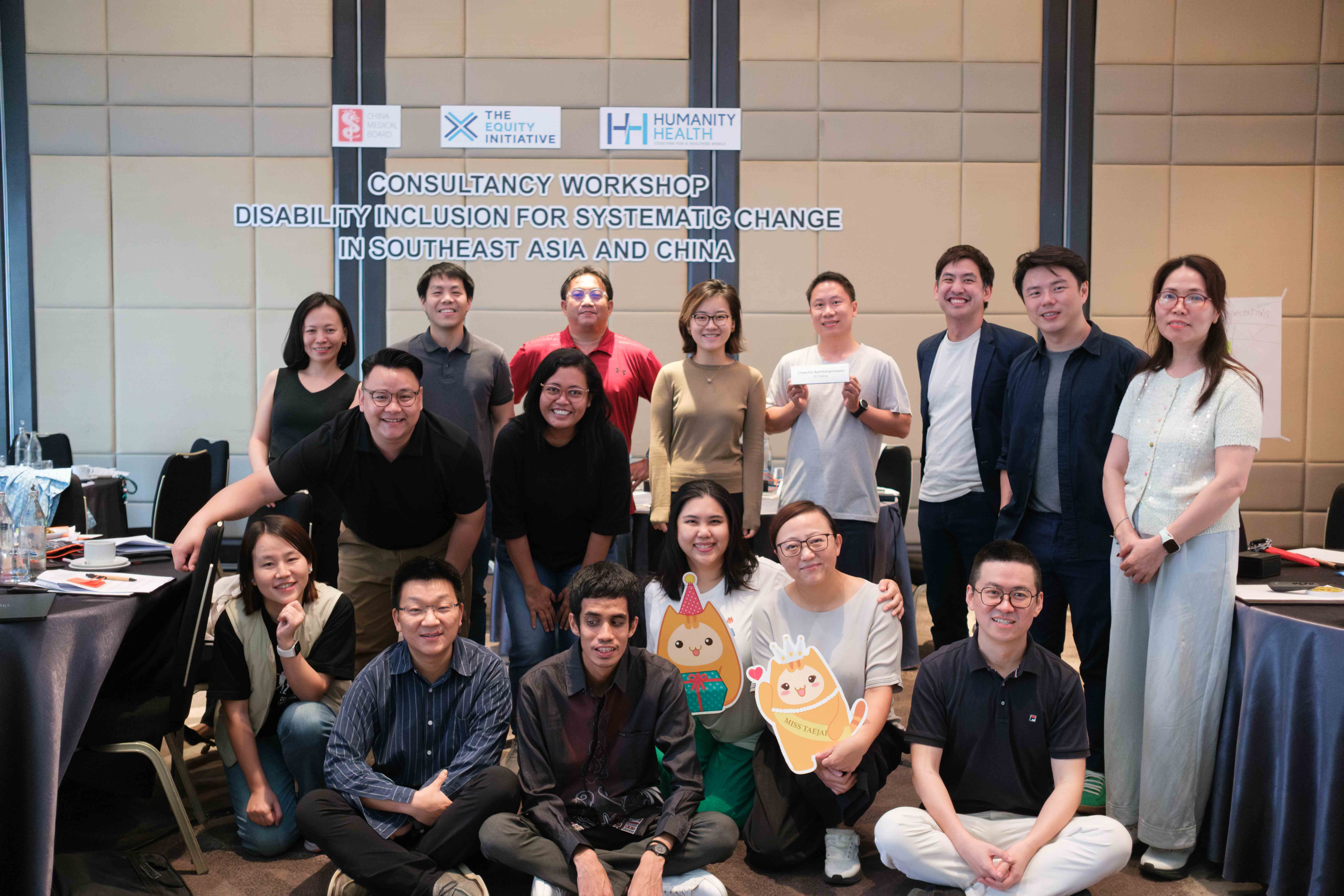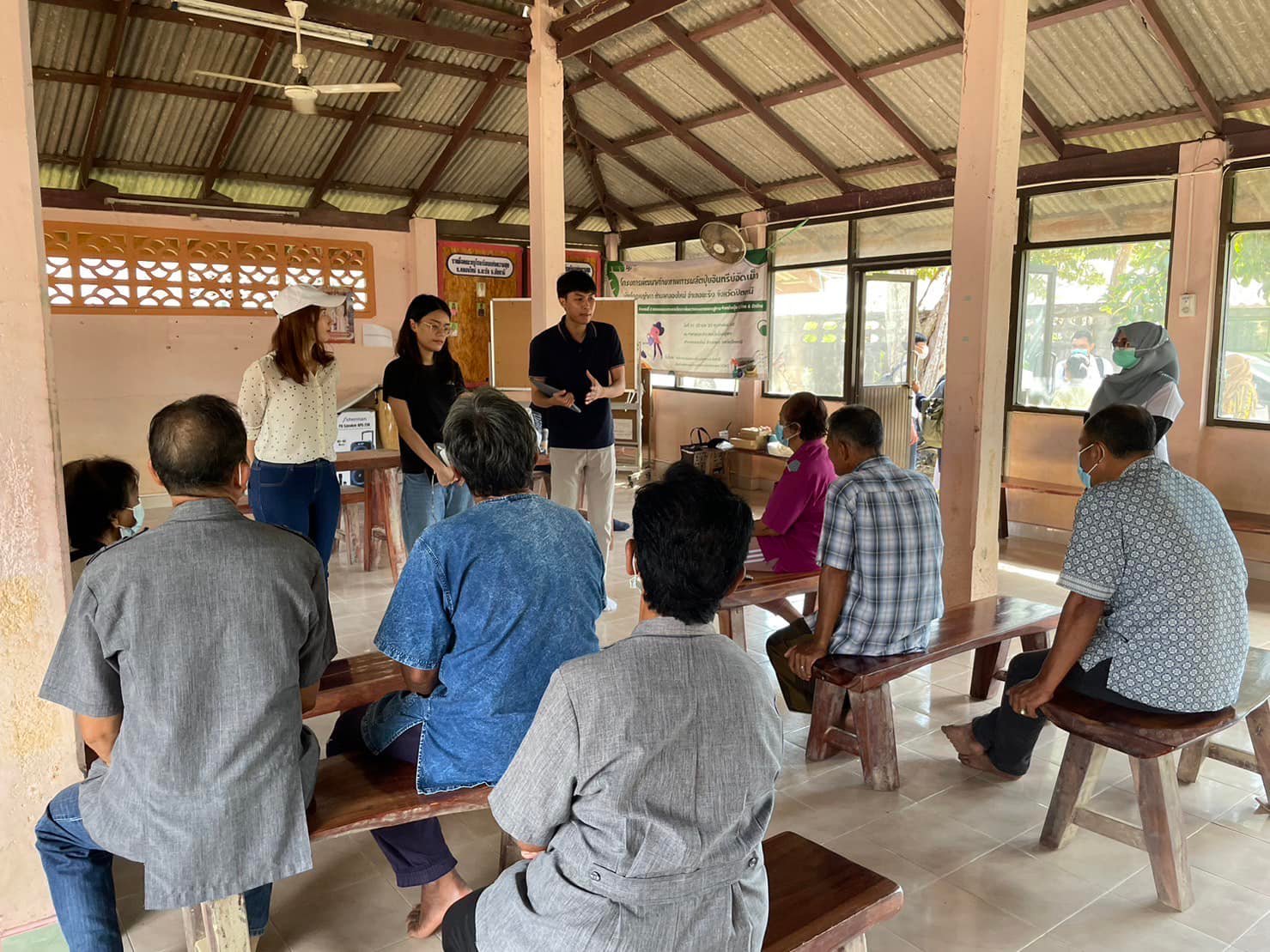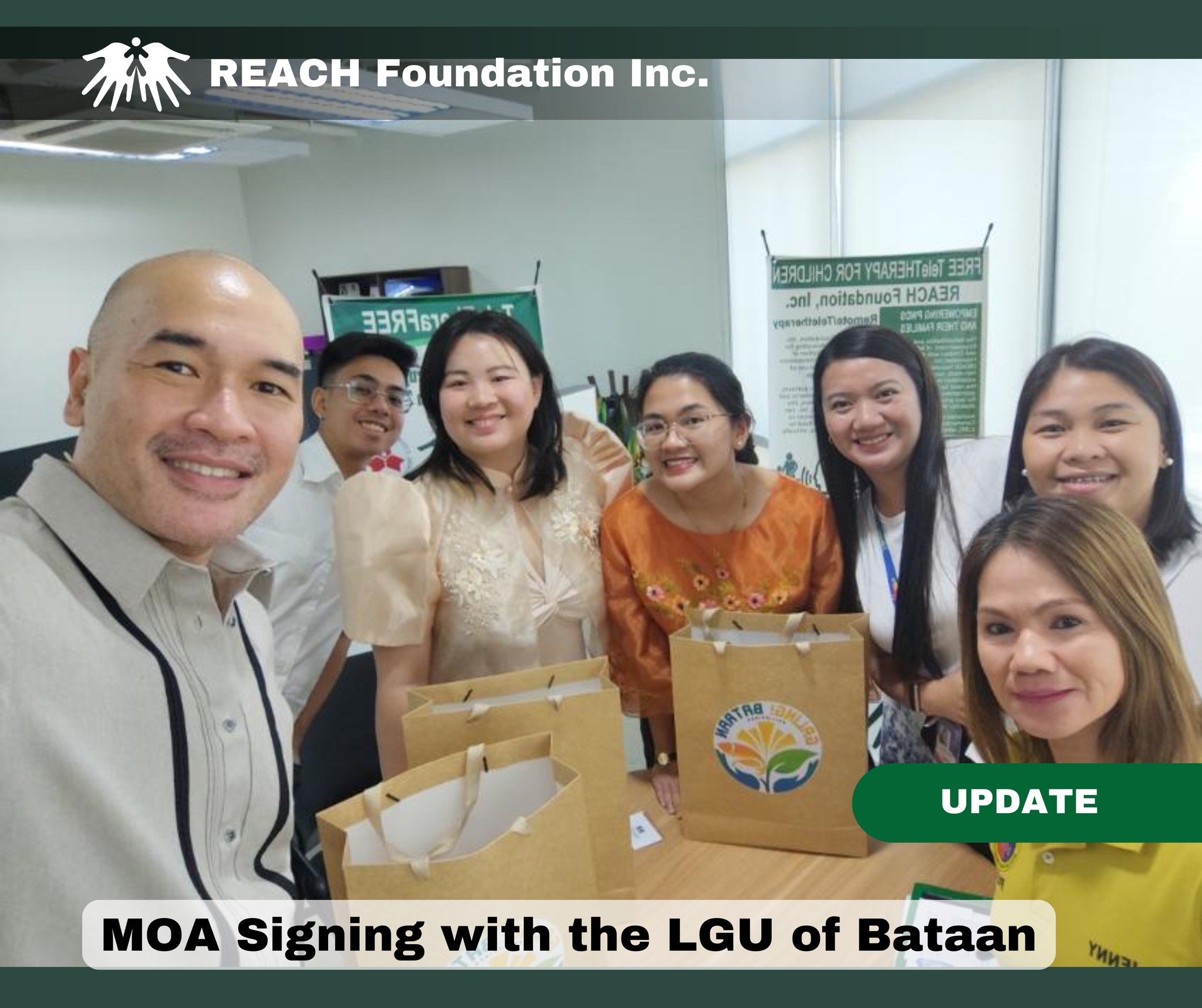Climate Justice and Health Equity: A Workshop
From August 15–17, 2025, more than 40 Equity Initiative Fellows, National Committee Members, staff and regional partners convened in Bangkok for a CMB/EI Climate Justice and Health Equity Workshop. Over three days of field immersion and structured dialogue, participants examined how climate change drives health inequities and explored pathways for collective action across Southeast Asia and China.
This workshop is part of The Equity Initiative’s Climate Justice for Health Equity Action Plan, through which EI is embarking on a transformative journey to integrate climate justice into its work. By leveraging the expertise and commitment of its Fellows, the program seeks to address the growing inequities caused by climate change and to ensure that health equity becomes a central consideration in climate responses across the region.
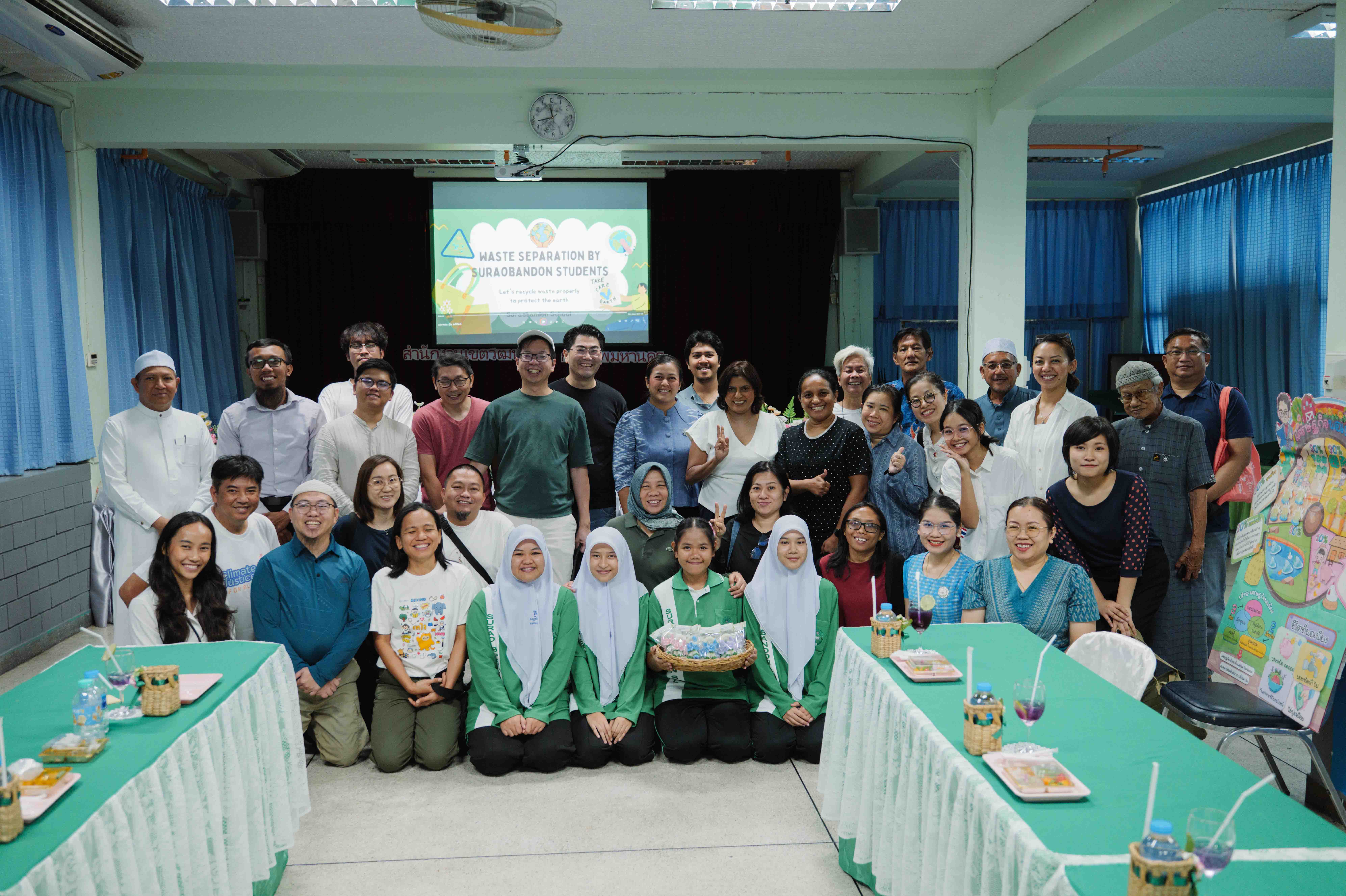
Community field visit at Surao Ban Don community where students presented their efforts to improve air quality in their school.
The workshop began with a visit to the Surao Ban Don community, where Fellows observed firsthand how environmental change intersects with culture, livelihoods, and health. Facilitated by the Thai-based Local Development Institute (LDI), discussions with residents highlighted diverse challenges, from rising electricity costs at the local mosque to student-led efforts to improve air quality in schools. These experiences provided a foundation for subsequent reflections and strategy-building. As EI Fellow Renard Siew (2021, Malaysia) reflected, “It was a reminder of how culture, nature, and lived experiences are deeply intertwined, and how climate justice must be rooted in these connections.”
Building on this grounding, Fellows engaged in a roundtable with a diverse group of external partners from the United Nations Economic and Social Commission for Asia and the Pacific (UNESCAP), Deutsche Gesellschaft für Internationale Zusammenarbeit (GIZ), World Food Programme (WFP), Asian Development Bank (ADB), Food and Agriculture Organization (FAO), C40 Cities, Health in Harmony, Climate Action Lab Myanmar (CALM), LDI and more. The exchange underscored key issues, including the limited attention given to health within climate financing, and the importance of ensuring that community perspectives are not overshadowed in policy processes. Fellows contributed their own accounts of displacement, deforestation, and resilience, reinforcing the need to elevate grassroots leadership.
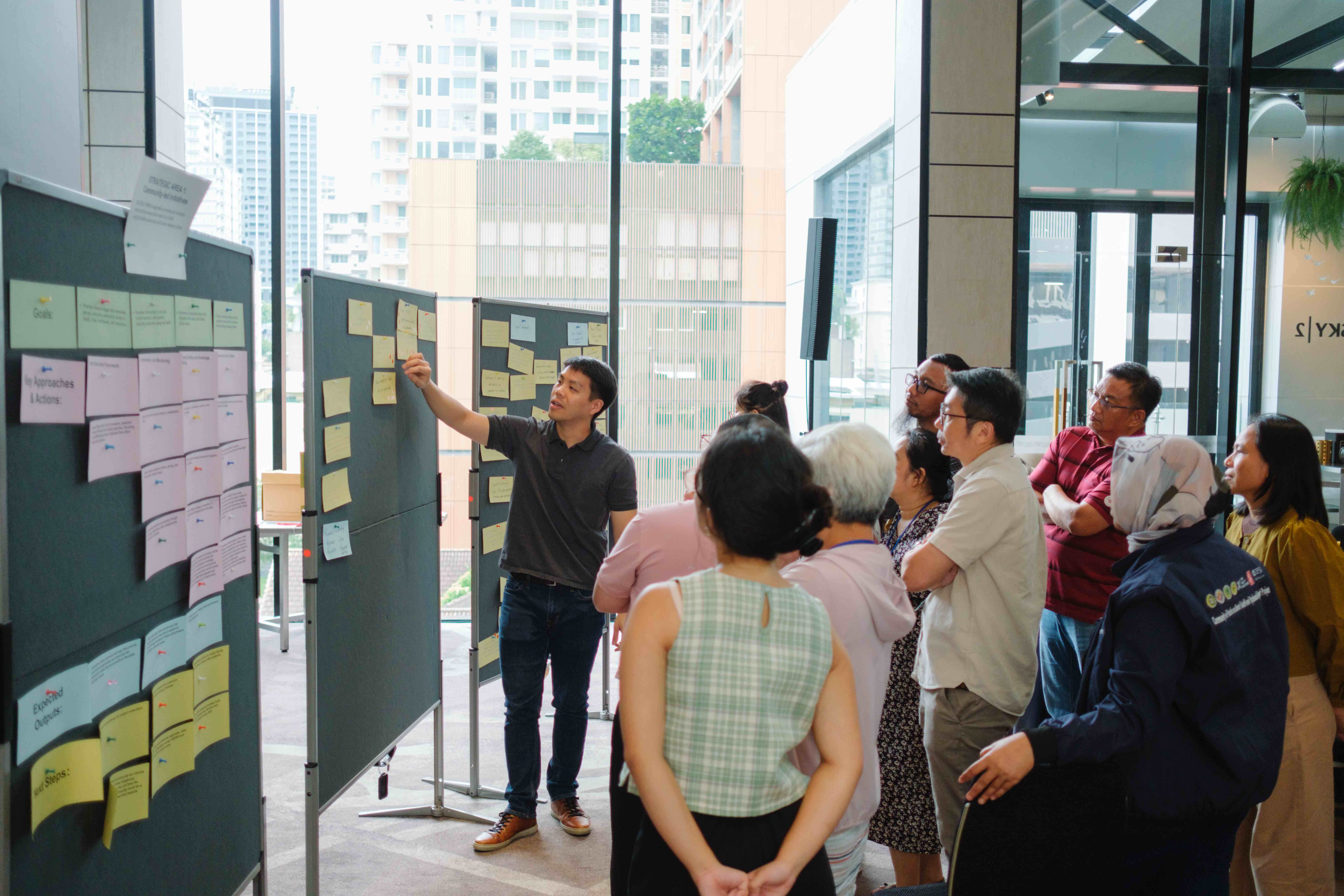
Fellows and partners strategize next steps in Climate Justice.
In the days that followed, EI Fellows, National Committee members and staff turned to strategy. Working groups developed two primary streams of action: community-led initiatives, and policy and advocacy. Examples ranged from youth-driven disaster preparedness to women-led health literacy projects, illustrating the value of local knowledge and innovation. Fellows also began shaping an advocacy roadmap, including preparation of a policy brief to be presented at the 2026 Annual Forum in January, and outlined a longer-term vision for integrating health equity more fully into climate-related funding.
Communications was identified as a cross-cutting priority. Through collaborative exercises, Fellows proposed approaches for strengthening public engagement, policy influence, and partner collaboration. Ideas included youth-focused campaigns, a Speaker’s Bureau, and regional learning exchanges—efforts intended to make climate and health linkages more visible and actionable.
The workshop also featured the premiere of two short documentary videos produced by two Fellows- Bampen Chaiyarak (2022, Laos), and Kaneka Keo (2023, Cambodia). One explored restorative culture work in Thailand, showing how art can support healing in communities affected by exploitative mining practices, while the other documented efforts along the Mekong River that link climate resilience with cultural identity. These films illustrated the role of storytelling in connecting climate justice and health equity and underscored the importance of creative approaches in amplifying community voices.
The day concluded with a screening introduced by EI Fellow Vannaphone Sitthirath (2019, Laos), who produced the film featuring The Che Brother by Laotian filmmaker Anysay Keola, part of the Mekong 2030 anthology. Shown exclusively at the workshop and other relevant events, the film offered a stark reflection on exploitation, survival, and dignity in the Mekong region, underscoring how climate justice and health equity are inseparable.
By the close of the workshop, caretaker groups were established to advance work in fundraising, partnerships, communications, and Annual Forum planning. The hard work ended with a set of clear commitments designed to sustain collaboration, strengthen community voices, and embed health equity within broader climate justice efforts.
